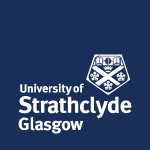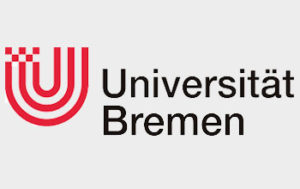 The 1st UK workshop on Optimisation in Space Engineering (OSE) was held on 5-6 November 2013 in Birmingham with one of the outputs being the formation of a national working group. This event was jointly organised by the Turing Gateway to Mathematics (TGM), the European Space Agency (ESA) and the University of Southampton, and it was hosted by the University of Birmingham. In this first meeting, participants shared their latest engineering problems and proposed solutions so as to promote the creation and exchange of ideas and the identification of new trends and required developments.
The 1st UK workshop on Optimisation in Space Engineering (OSE) was held on 5-6 November 2013 in Birmingham with one of the outputs being the formation of a national working group. This event was jointly organised by the Turing Gateway to Mathematics (TGM), the European Space Agency (ESA) and the University of Southampton, and it was hosted by the University of Birmingham. In this first meeting, participants shared their latest engineering problems and proposed solutions so as to promote the creation and exchange of ideas and the identification of new trends and required developments.
 The 2nd OSE workshop took forward outputs generated from the first wokshop, such as identified challenges and issues. The event sought to address these through a series of talks, discussion and break-out group type activities. Feedback indicated the value of engagement between academia and industry, especially at an early stage of a problem formation. Additionally, a number of example space engineering optimisation problems were investigated and the solutions compared and contrasted to gain understanding of the efficiency of the various techniques.
The 2nd OSE workshop took forward outputs generated from the first wokshop, such as identified challenges and issues. The event sought to address these through a series of talks, discussion and break-out group type activities. Feedback indicated the value of engagement between academia and industry, especially at an early stage of a problem formation. Additionally, a number of example space engineering optimisation problems were investigated and the solutions compared and contrasted to gain understanding of the efficiency of the various techniques.
 During the 3rd OSE workshop, organised by the University of Strathclyde in Glasgow, participants were invited to share their latest engineering problems and proposed solutions, so as to promote the creation and exchange of ideas and the identification of new trends and required developments. The event was attended by over 35 participants from the UK and also from across Europe. A space challenge competition was run as part of this event and an open discussion on this took place at the workshop. The challenges were chosen because of their relevance to actual space missions: Optimal Area Mapping for the Asteroid Impact Mission AIM, Optimal Trajectory for an Active Debris Removal Mission, Optimal Deployment Strategy and Constellation Management.
During the 3rd OSE workshop, organised by the University of Strathclyde in Glasgow, participants were invited to share their latest engineering problems and proposed solutions, so as to promote the creation and exchange of ideas and the identification of new trends and required developments. The event was attended by over 35 participants from the UK and also from across Europe. A space challenge competition was run as part of this event and an open discussion on this took place at the workshop. The challenges were chosen because of their relevance to actual space missions: Optimal Area Mapping for the Asteroid Impact Mission AIM, Optimal Trajectory for an Active Debris Removal Mission, Optimal Deployment Strategy and Constellation Management.
 The 4th OSE workshop was held for the first time outside the UK, hosted by the University of Bremen in Germany. The OSE4 included two events: tutorials on the solver WORHP and the optimal control library TransWORHP and a 2 days workshop with presentations of the participants and round table discussions.
The 4th OSE workshop was held for the first time outside the UK, hosted by the University of Bremen in Germany. The OSE4 included two events: tutorials on the solver WORHP and the optimal control library TransWORHP and a 2 days workshop with presentations of the participants and round table discussions.

